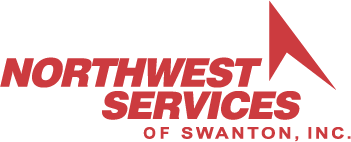
We spend lots of time indoors. As a matter of fact, the Environmental Protection Agency (EPA) has approximated being inside accounts for 90% of our days. However, the EPA also says your indoor air can be three to five times dirtier than outdoors.
That’s because our homes are tightly sealed to boost energy efficiency. While this is great for your utility bills, it’s not so great if you’re among the 40% of the population with respiratory allergies.
When outdoors ventilation is insufficient, pollutants such as dust and volatile organic compounds (VOCs) might get trapped. As a result, these pollutants might aggravate your allergies.
You can improve your indoor air quality with crisp air and usual cleaning and vacuuming. But if you’re still having problems with symptoms while you’re at home, an air purifier could be able to provide relief.
While it can’t eliminate pollutants that have landed on your furnishings or carpet, it might help purify the air moving around your house.
And air purification has also been scientifically verified to help lessen some allergic symptoms, according to the American College of Allergy, Asthma and Immunology. It could also be useful if you or a family member has lung trouble, including emphysema or COPD.
There are two kinds, a portable air purifier or a whole-home air purifier. We’ll examine the differences so you can learn what’s right for your home.
Whole-House Air Purifier vs. Portable Air Purifiers
A portable air purifier is for one room. A whole-house air purifier accompanies your HVAC unit to clean your entire residence. Some kinds can clean by themselves when your home comfort unit isn’t operating.
What’s the Best Air Purifier for Allergies?
Seek an option with a High Efficiency Particulate Air (HEPA) filter. HEPA filters are used in hospitals and provide the most comprehensive filtration you can get, as they eliminate 99.97% of particles in the air.
HEPA filters are even more beneficial when used with an ultraviolet (UV) germicidal light. This dynamic blend can eliminate dust, dander, pollen and mold, all of which are standard allergens. For the best in air purification, consider a unit that also has a carbon-based filter to eliminate household odors.
Avoid buying an air purifier that makes ozone, which is the main component in smog. The EPA warns ozone could worsen respiratory troubles, even when emitted at low amounts.
The Allergy and Asthma Foundation of America has created a listing of questions to consider when purchasing an air purifier.
- What can this purifier extract from the air? What doesn’t it take out?
- What’s its clean air delivery rate? (A better figure means air will be freshened more rapidly.)
- How frequently does the filter or UV bulb need to be changed]? Can I finish that on my own?
- How much do replacement filters or bulbs cost?
How to Reduce Seasonal Allergy Symptoms
Want to have the {top|most excellent|best] performance from your new air purification unit? The Mayo Clinic advises doing other steps to decrease your exposure to problems that can cause seasonal allergies.
- Stay in your home and keep windows and doors shut when pollen counts are high.
- Have someone else cut the lawn or pull weeds, since these jobs can worsen symptoms. If you are required to do these chores on your own, consider using a pollen mask. You should also bathe right away and put on clean clothes once you’re done.
- Avoid drying laundry outdoors.
- Use the AC while at your house or while you’re on the road. Consider installing a high efficiency air filter in your residence’s heating and cooling equipment.
- Even out your house’s humidity saturation with a whole-house dehumidifier.
- Hardwood, tile or linoleum are the best flooring materials for lowering indoor allergens. If your residence has carpet, add a HEPA filter on your vacuum cleaner.
Let Our Professionals Manage Your Indoor Air Quality Requirements
Want to move forward with adding a whole-house air purifier? Give our professionals a call at 419-548-5017 or contact us online to request an appointment. We’ll help you locate the best unit for your family and budget.
